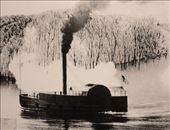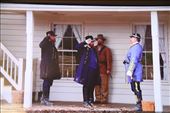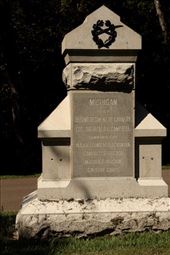THINGS WEREN’T GOING WELL IN FOR THE UNION IN 1861. After the defeat at Bull Run, Lincoln needed a victory. The United States needed a hero. Brigadier General Ulysses S. Grant provided both with victories at Fort Henry and Fort Donelson in Tennessee. Following a fierce naval bombardment, Grant accepted the unconditional surrender of 13,000 rebels from his one-time friend Confederate General Simon Buckner, earning him the sobriquet “Unconditional Surrender Grant,.” Subsequent Union victories at Stone River, Chickamagua and Shiloh established Union control of both the Columbia and Tennessee Rivers and the all important rail lines to Nashville.


Naval support Unconditional Surrender
The National Park Service has established National Battlefields at each of these sites. Little remains from the 19th Century other than headstones marking the graves of fallen Union soldiers. Confederate dead, like most losing sides, are often buried in unmarked mass graves. The battle sites themselves are indicated by fences and cannons marking the lines and granite monuments to the regiments that participated.


Shiloh National Battlefield Great-great grandpa's unit, Shiloh
War historians and Civil War buffs can name each commander, detail every thrust and parry and recite stories of individual heroism. Descendants of combatants search for their ancestors’ resting places. For the rest of us the Park Service has produced wonderful films starring thousands of Civil War re-enactors — the equal of anything Ken Burns has presented. But nothing can match the feeling of senseless slaughter of young men — and sometimes women — who neither had slaves nor believed in slavery by other young men who spoke the same language and worshipped the same god. War! What is it good for? Absolutely Nothin’!